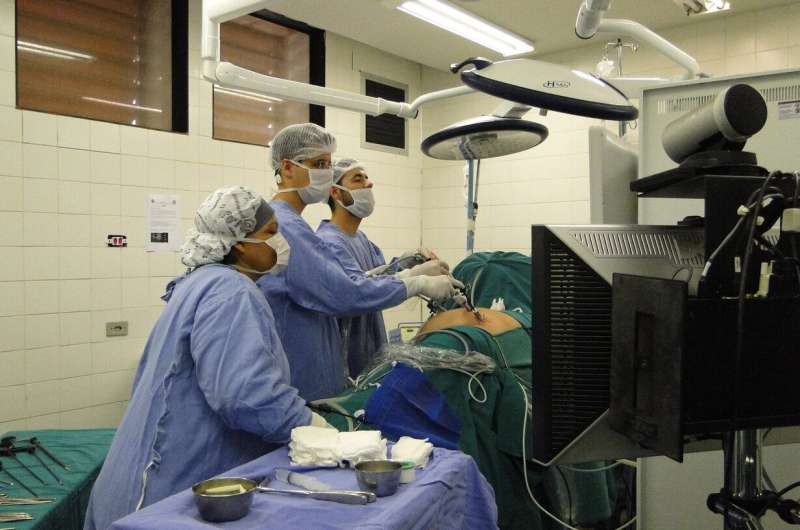Credit: Pixabay/CC0 Public Domain
T-cellacute lymphoblastic leukemia (T-ALL) is a cancer of the blood that affects mainly children, but also less frequently adults. In adults, although the response to treatment might be initially positive, relapses are common and have a poor prognosis.
A collaborative project between IRB Barcelona's Biomedical Genomics lab, headed by ICREA researcher Núria López-Bigas, Anna Bigas' group at the Hospital del Mar Medical Research Institute (IMIM-Hospital del Mar), and Josep Maria Ribera's lab at the Josep Carreras Leukemia Research Institute (IJC) and CIBERONC, has discovered that the cells responsible for resistance to T-ALL treatment in adults are already present in the tumors before diagnosis.
Tumors can be understood as cell populations that evolve. Cancer cells acquire mutations that confer an advantage over other cells, for example, allowing them to divide faster, or in this particular case, to be resistant to treatment.
"After analyzing various samples from 19 adult patients, we have been able to describe the evolution of the disease and we have concluded that the cells responsible for tumor recurrence after treatment are already present at diagnosis, although in almost undetectable numbers," says López-Bigas. "This finding confirms the importance of detecting leukemia early," she adds.
Genome sequencing and bioinformatics analysis
To carry out this work, the group of researchers sequenced the genome of 19 patients at the time of diagnosis and during treatment and relapse, and compared the information obtained with a database of 238 patients (adults and children) affected by similar kinds of tumors (Acute lymphoblastic leukemia, ALL).
"By comparing the primary leukaemias in adults and pediatric patients, we have observed that mutational processes are similar between pediatric and adult tumors, and in all subtypes of leukemia," says Inés Sentís, co-first author of the study together with Santiago González and Ph.D. student in the Biomedical Genomics lab. "But specific genetic alterations, responsible for malignancy, differ between the different forms of this particular disease."
More information: Inés Sentís et al. The evolution of relapse of adult T cell acute lymphoblastic leukemia, Genome Biology (2020). DOI: 10.1186/s13059-020-02192-z
Journal information: Genome Biology























